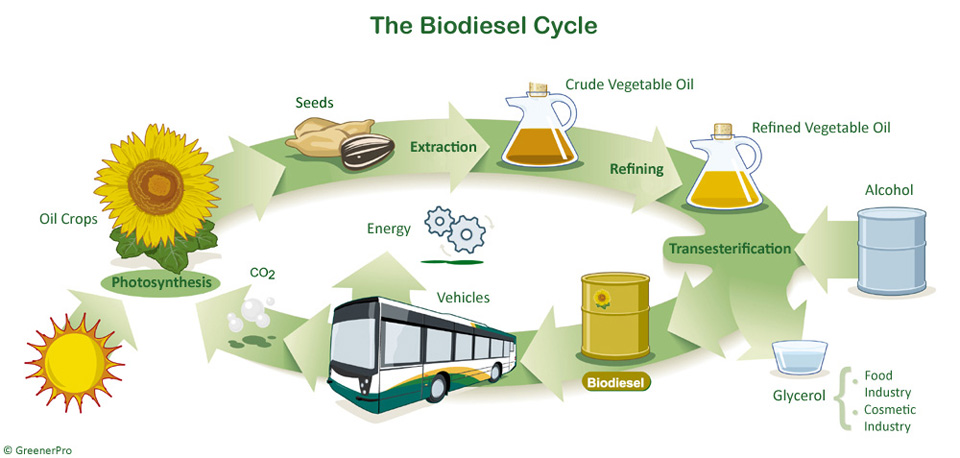Biodiesel: What is it?
Biodiesel is a domestically produced, renewable fuel that can be manufactured from new and used vegetable oils, animal fats, or recycled restaurant greases. Also know as “Green diesel,” biodiesel has similar physical properties to petroleum diesel, but it is a cleaner-burning renewable alternative. Biodiesel is a liquid fuel often referred to as B100 or neat biodiesel in its pure, unblended form. Like petroleum diesel, biodiesel is used to fuel compression-ignition engines.

Benefits & Considerations
Environmental
Biodiesel offers considerable greenhouse gas emission benefits. The carbon dioxide released from biodiesel combustion is offset by the carbon dioxide that is absorbed from growing the feedstock (i.e. soybeans) used to produce the fuel. An analysis conducted by Argonne National Labs found B100 reduced CO2 emissions by 74% compared to petroleum diesel. Biodiesel also cuts particulate matter in half, reducing smog and providing cleaner air to breathe.
Food and Fuel
Biodiesel actually enhances the world’s protein supply. Soybeans are the most efficient way to grow protein. However, in this process farmers are left with more soybean oil than we consume for food or livestock feed. Using this left over oil for biodiesel not only reduces waste output, but also reduces costs for consumer and producers. (Courtesy of Biodiesel)
Energy Security
Biodiesel is produced within the United States and can be a direct substitute for petroleum diesel. Soybean biodiesel has a positive energy balance, meaning that soybean biodiesel yields 4.56 units of energy for every unit of fossil energy consumed over its life cycle. Using this domestic fuel reduces the need to import petroleum while increasing energy and food yields.
Safety
Biodiesel has proved to be nontoxic and biodegradable, reducing 97% of hazardous waste compared to petroleum diesel. Because it is less combustible, it is much safer if spilt, when handled, stored, or transported than other fuels.
